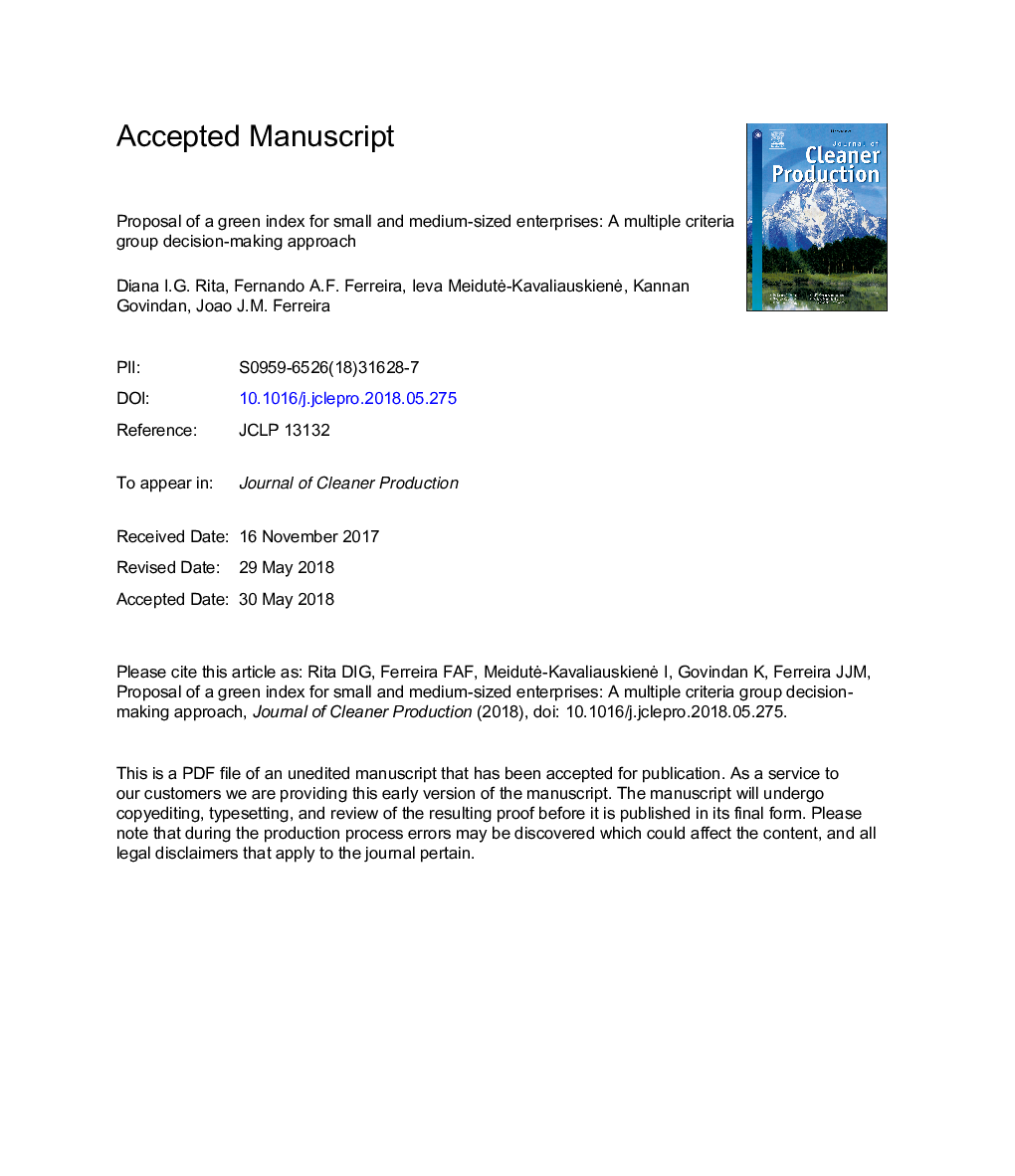| Article ID | Journal | Published Year | Pages | File Type |
|---|---|---|---|---|
| 8094054 | Journal of Cleaner Production | 2018 | 38 Pages |
Abstract
The impact of small and medium-sized enterprises' (SMEs) activities on the environment has proved to be negative in certain contexts, since these companies have not, for the most part, included environmentally sustainable practices in their processes, strategies, or long-term vision. Therefore, SMEs need to start adopting more environmentally-friendly behaviors to ensure a better future for coming generations. SMEs have failed to do this until now - despite making a significant effort - in part because dealing with this issue is a quite subjective process and a variety of aspects need to be considered. The current study sought to address this problem through the integrated application of cognitive mapping and the Analytic Hierarchy Process (AHP). Based on a constructivist approach, group sessions involving a panel of entrepreneurs and environmental experts created, tested, and validated a green index for SMEs that addresses two of the major limitations of current evaluation approaches. The first limitation is the manner in which evaluation criteria have been defined within the scope of SME environmental conduct assessments, while the second is the method with which these same criteria's weights - or trade-offs - are calculated. The proposed index produced promising results when used to identify the most environmentally-friendly SMEs in a sample of firms. These results can be used as benchmark data for environmental improvement initiatives, and the findings confirm that the methodologies underlying the proposed model-building process facilitate a clearer understanding of how to evaluate SMEs' pro-environmental behaviors. The advantages and limitations of the proposed index are also discussed.
Keywords
Related Topics
Physical Sciences and Engineering
Energy
Renewable Energy, Sustainability and the Environment
Authors
Diana I.G. Rita, Fernando A.F. Ferreira, Ieva MeidutÄ-KavaliauskienÄ, Kannan Govindan, Joao J.M. Ferreira,
